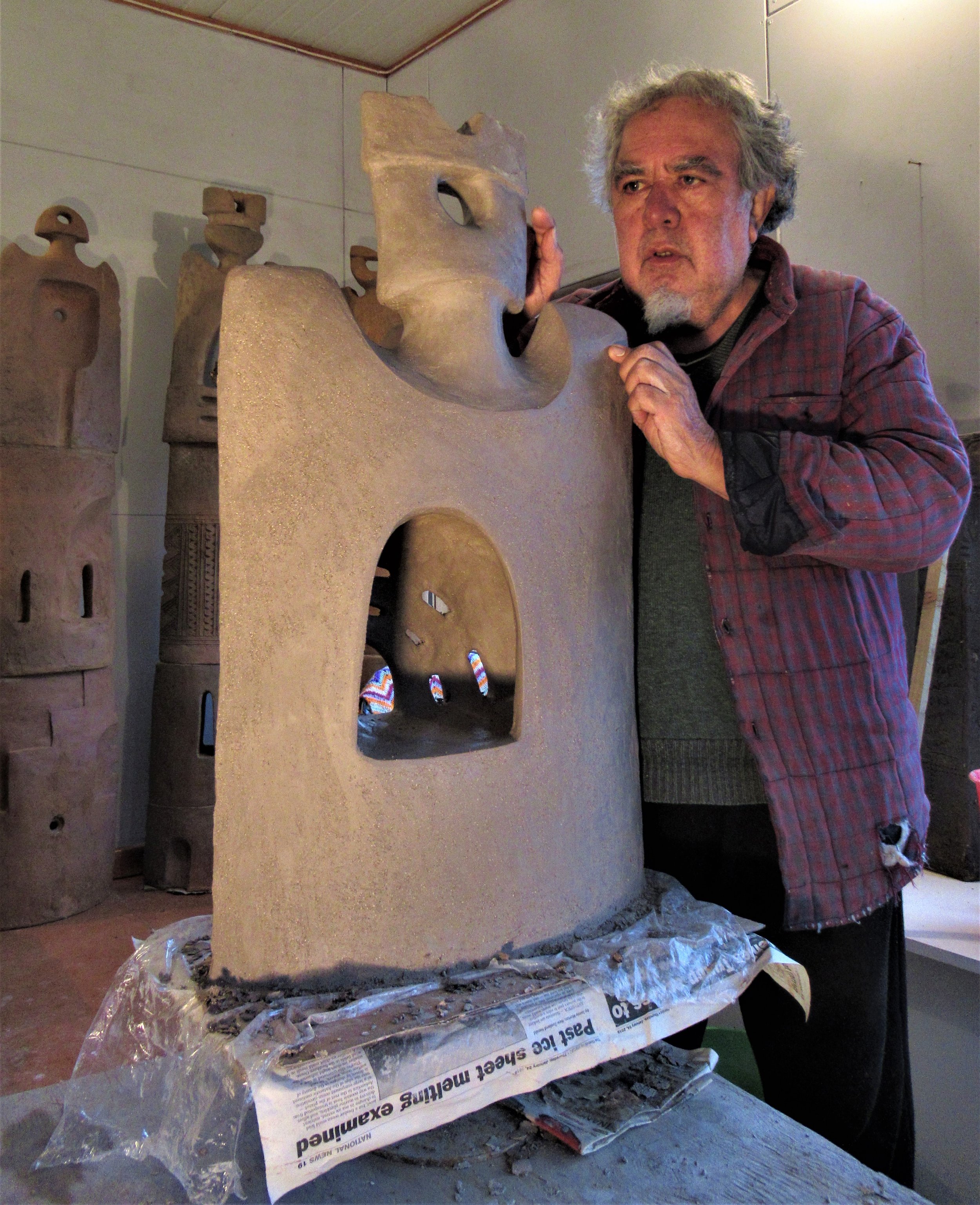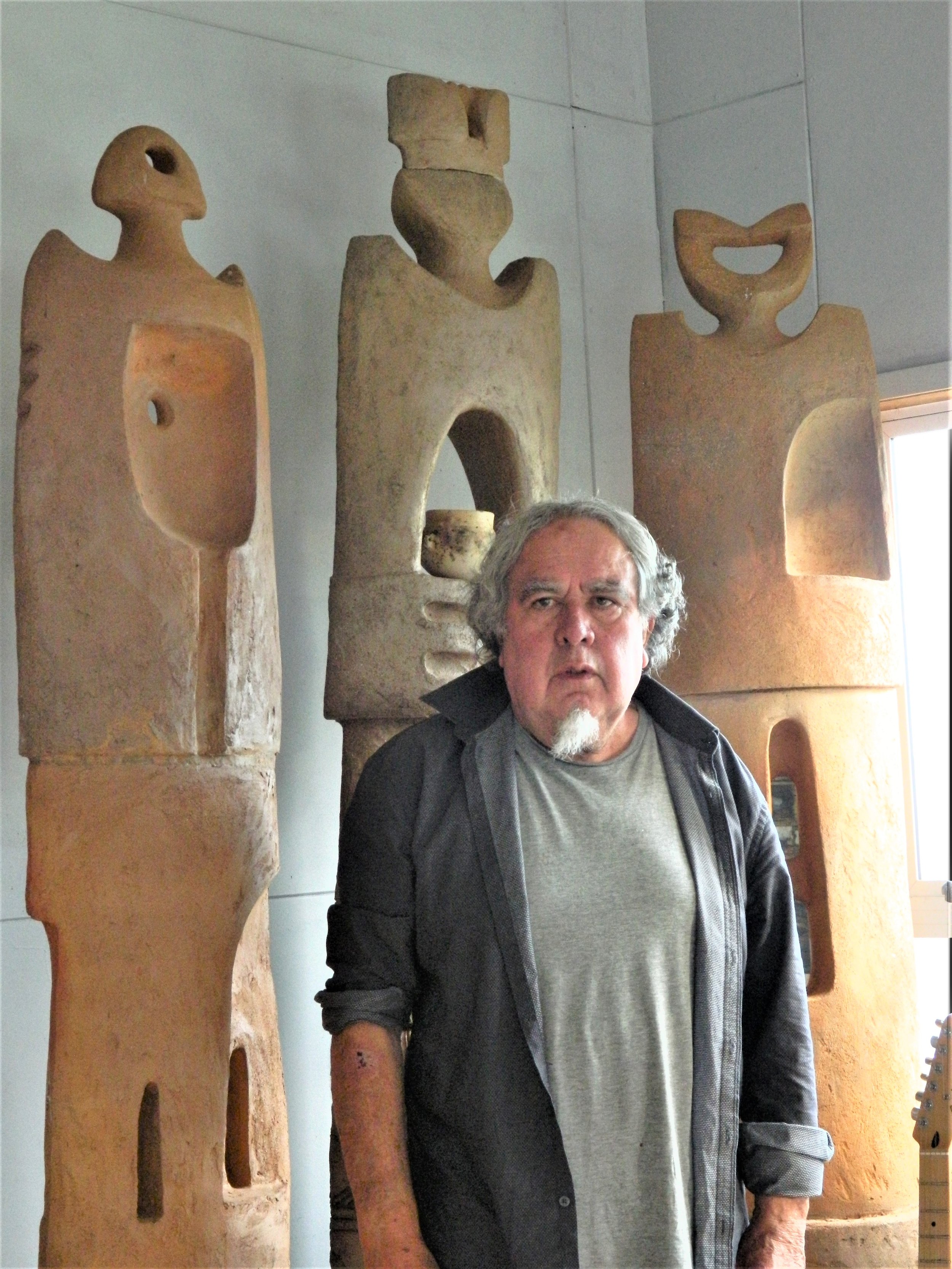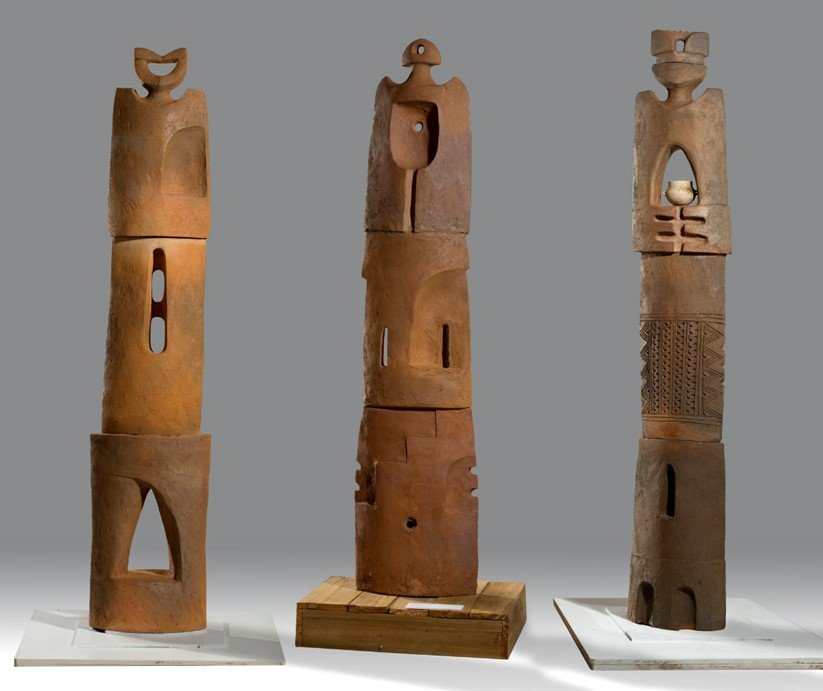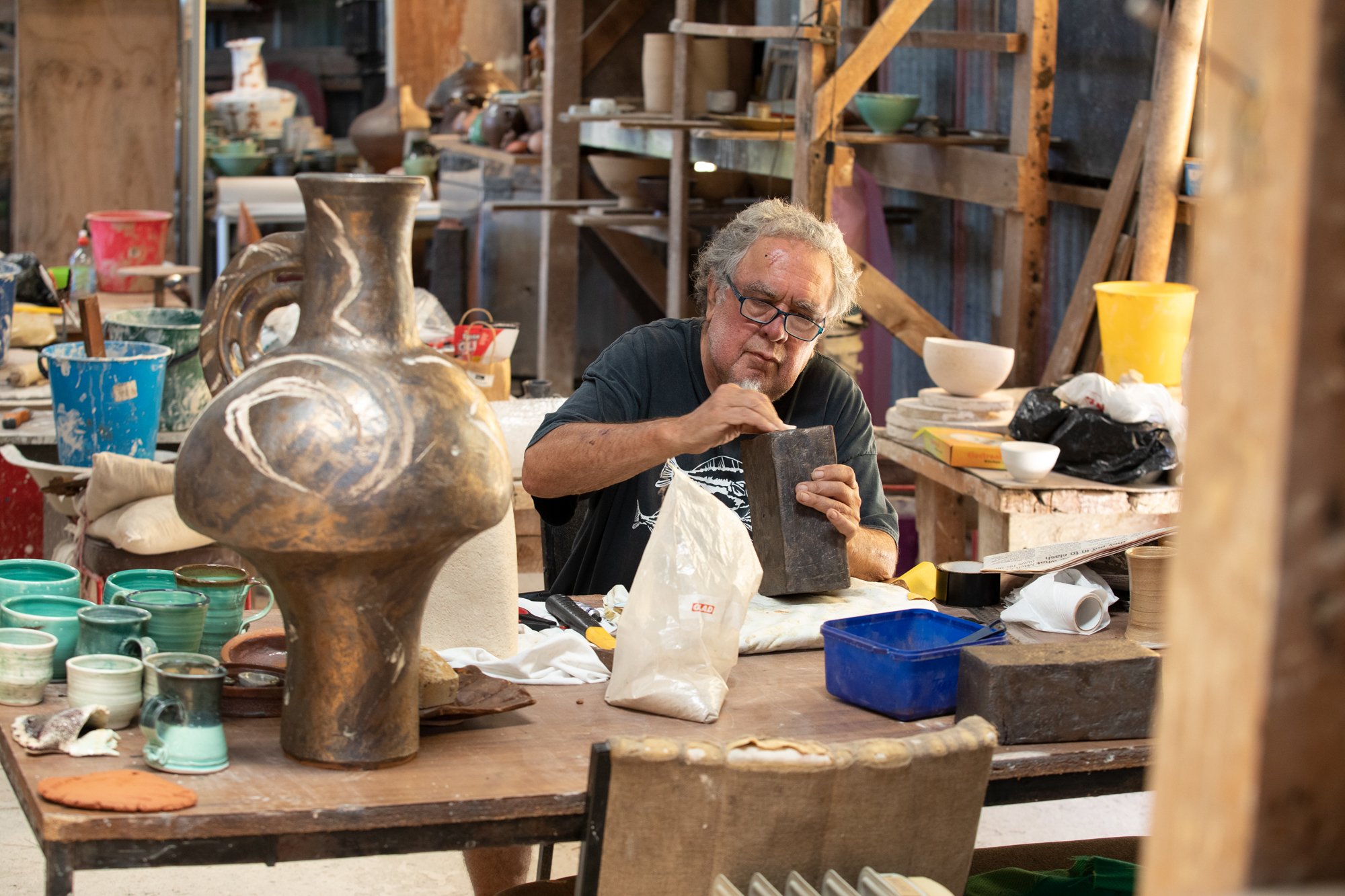Baye Pewhairangi Riddell
Ko Hikurangi te maunga
Ko Waiapu te awa
Ko Ngāti Porou te iwi
Ko Ruataupare te hapū
Artist Statement
Baye Pewhairangi Riddell (Ngāti Porou) is among the five founding members of Ngā Kaihanga Uku, who are known as ‘Ngā Tokorima’.
Initially introduced to pottery while living in Christchurch in the early 1970s, Baye has earned a living from his work since embracing ceramics as a full time career in 1974, returning to his Tokomaru Bay rohe in 1979.
Baye was then invited to do workshops for Nga Puna Waihanga (Maori Artists and Writers) and through Nga Puna Waihanga eventually connected with Colleen Waata Urlich , Manos Nathan, Paparangi Reid and Hiraina Marsden. Because the two day workshops were too rushed to cover more in-depth processes it was decided to have a ten day wananga at Tokomaru Bay in 1987 and this essentially was the beginning of Ngā Kaihanga Uku. Wi Taepa and Paerau Corneal joined the group a little later and Ngā Kaihanga Uku has continued to be the face of Māori ceramics in Aotearoa and internationally, forging long standing links with other indigenous clay artists.
The Ngā Kaihanga Uku movement was showcased in the 2013-14 national touring exhibition ‘Uku Rere’ and in 2017 celebrated thirty years of existence, with an exhibition “Toru Tekau” at the Tairawhiti Museum and another ten day wananga at Tokomaru Bay.
Using clays dug from his whanau land Baye’s works reflect that connection to his whenua. A number of themes are explored and developed concurrently – some for many years - waharoa, toa, niho, ceremonial vessels, ipu mauri, tatau, pou. The pieces serve as metaphors, analogies and cross references for various narratives, histories, experiences and the artist’s personal world view.
In 2001 Baye was a guest artist at the World Ceramics Expo in South Korea. In 2007 he was the Toi Oahu Fellow at Oahu University, Hawaii and in 2011 he was awarded the Creative New Zealand Craft/Object Fellowship.
Image of Baye Riddell with his sculpture by Norm Heke












